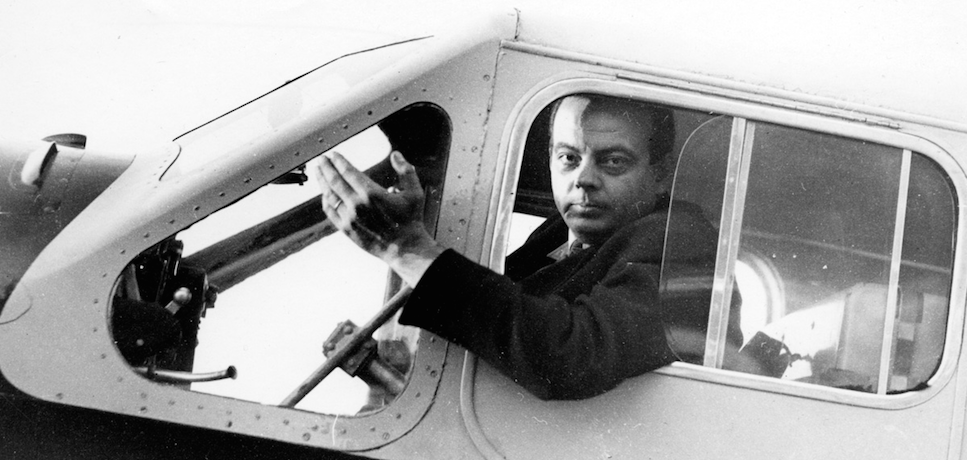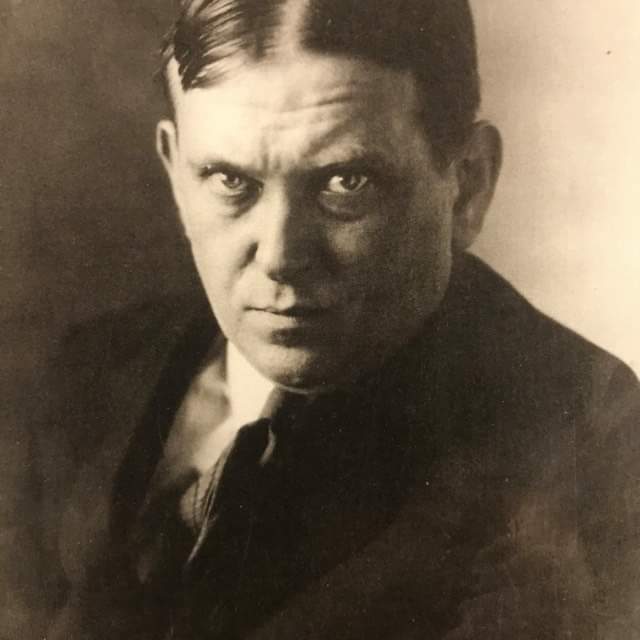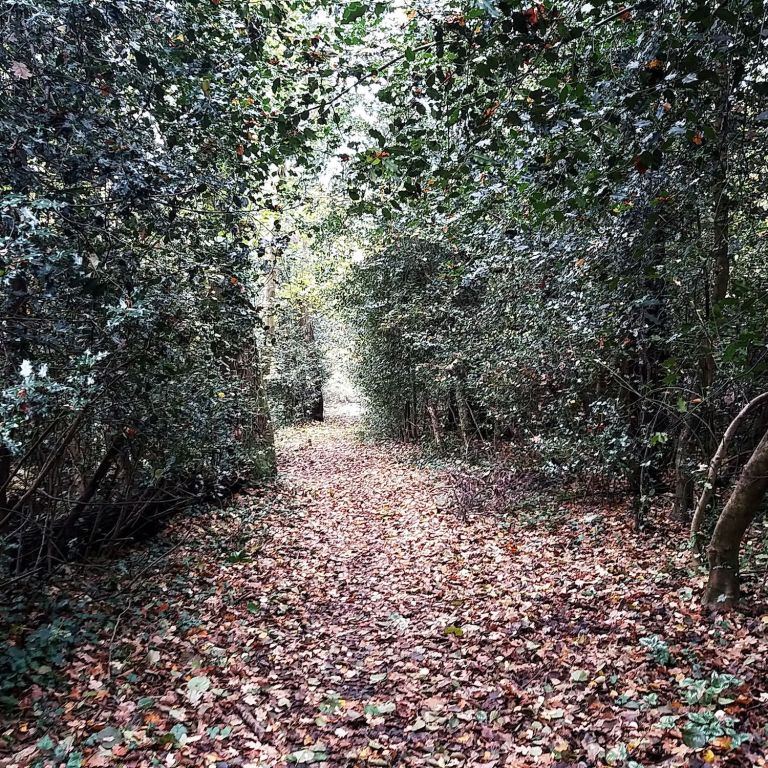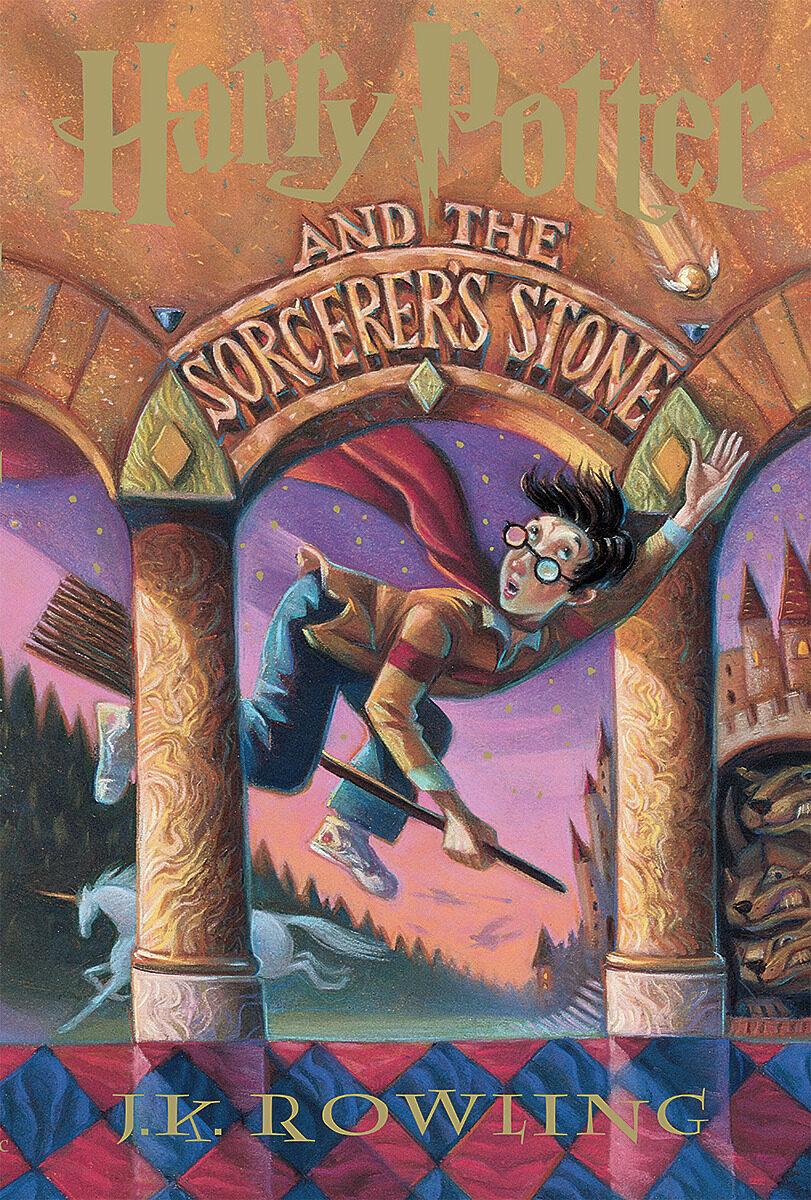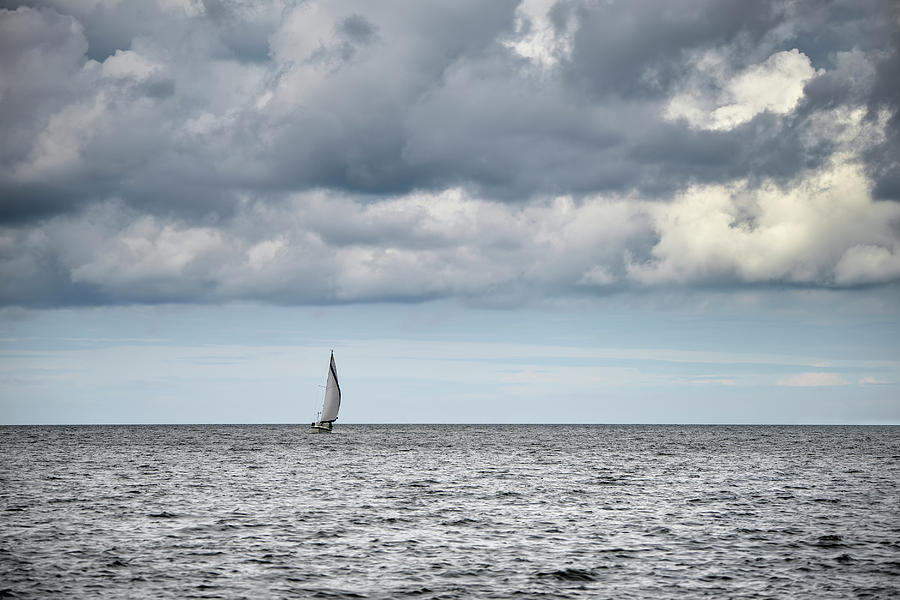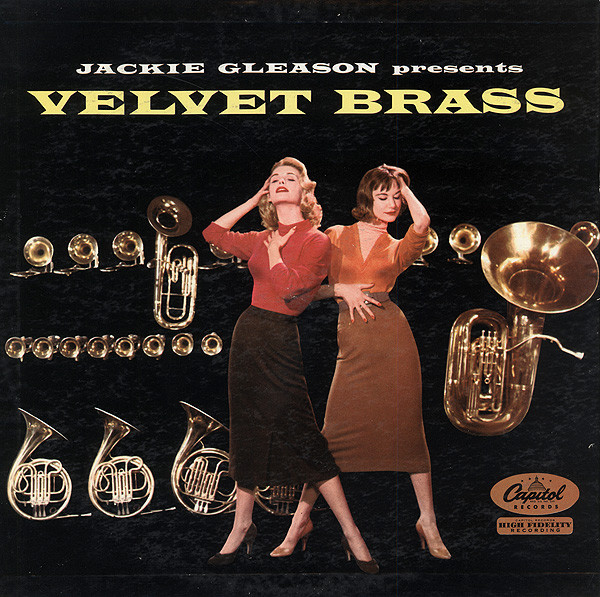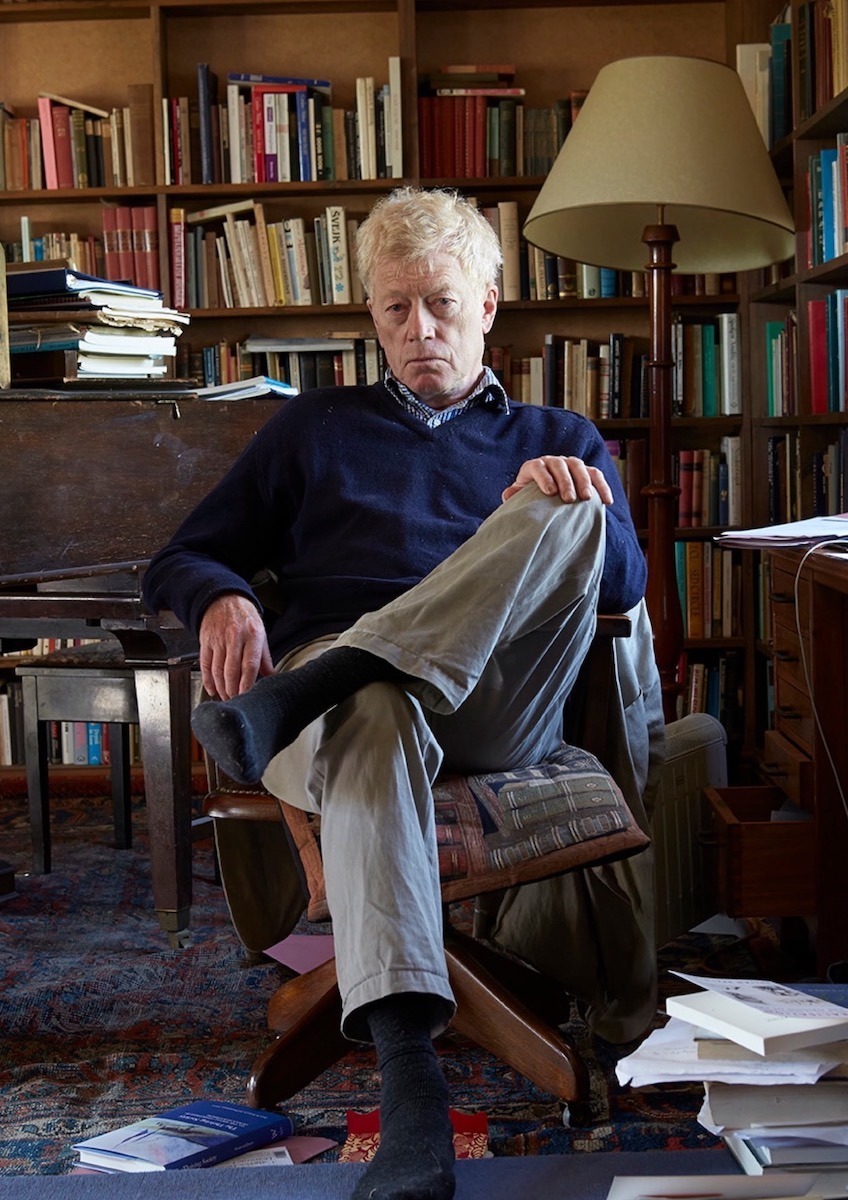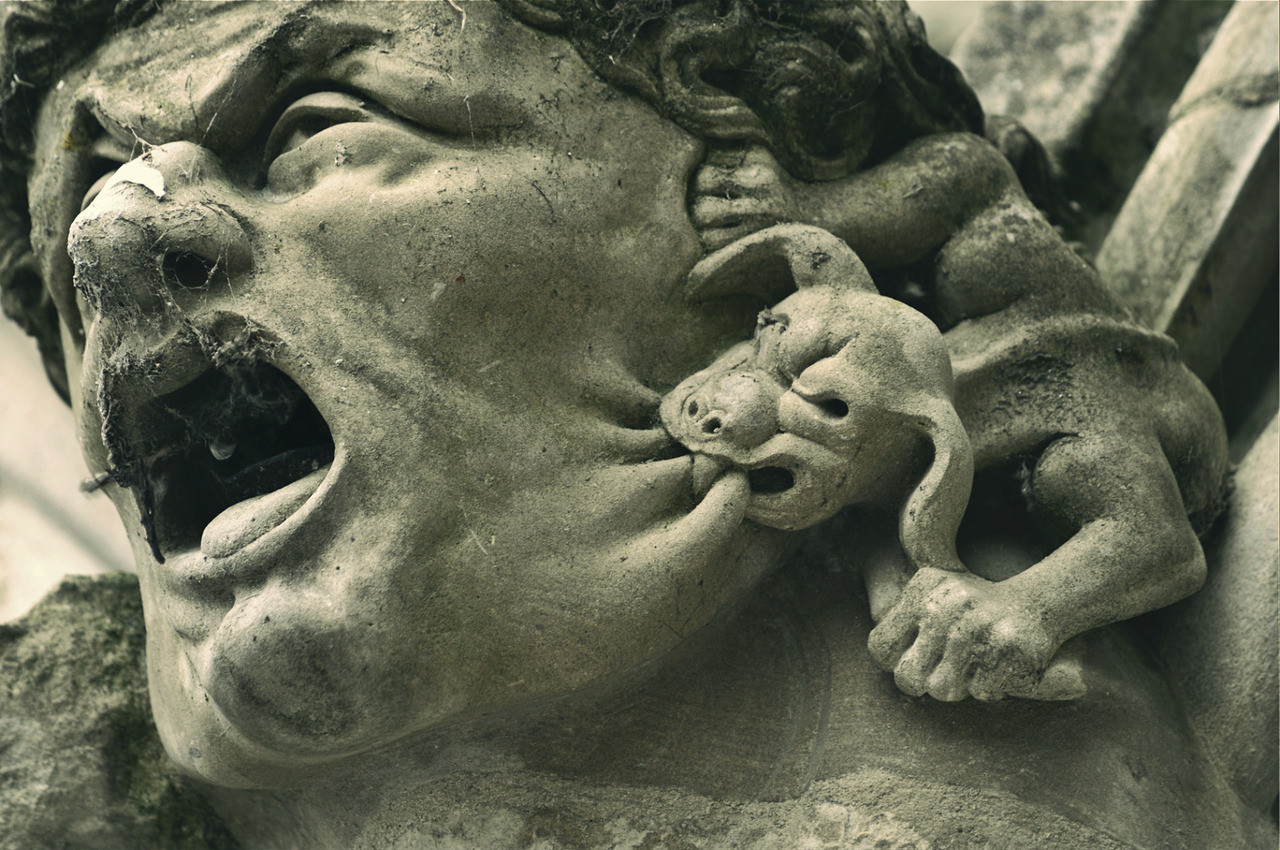I love it when a cover is better than the original.
30 June 2024
Choose.
I won't tell you that the world matters nothing, or the world's voice, or the voice of society. They matter a good deal. They matter far too much. But there are moments when one has to choose between living one's own life, fully, entirely, completely—or dragging out some false, shallow, degrading existence that the world in its hypocrisy demands. You have that moment now. Choose!
Oscar Wilde
Practising.
To those who busy themselves about bringing art into the lives of the people, I would also say—Do not dabble in revivals. The very word smacks of the vault. Revivals look back; art is concerned with the present. People will not be tempted to create by being taught to imitate. Except that they are charming, revivals of morris-dancing and folk-singing are little better than Arts and Crafts in the open. The dust of the museum is upon them. They may turn boys and girls into nimble virtuosi; they will not make them artists. Because no two ages express their sense of form in precisely the same way all attempts to recreate the forms of another age must sacrifice emotional expression to imitative address. Old-world merry-making can no more satisfy sharp spiritual hunger than careful craftsmanship or half hours with our "Art Treasures." Passionate creation and ecstatic contemplation, these alone will satisfy men in search of a religion.
I believe it is possible, though extremely difficult, to give people both—if they really want them. Only, I am sure that, for most, creation must precede contemplation. In Monsieur Poiret's Ecole Martine scores of young French girls, picked up from the gutter or thereabouts, are at this moment creating forms of surprising charm and originality. That they find delight in their work is not disputed. They copy no master, they follow no tradition; what they owe to the past—and it is much—they have borrowed quite unconsciously with the quality of their bodies and their minds from the history and traditional culture of their race. Their art differs from savage art as a French midinette differs from a squaw, but it is as original and vital as the work of savages. It is not great art, it is not profoundly significant, it is often frankly third-rate, but it is genuine; and therefore I rate the artisans of the Ecole Martine with the best contemporary painters, not as artists, but as manifestations of the movement.
I am no devout lover of rag-time and turkey-trotting, but they too are manifestations. In those queer exasperated rhythms I find greater promise of a popular art than in revivals of folk-song and morris-dancing. At least they bear some relationship to the emotions of those who sing and dance them. In so far as they are significant they are good, but they are of no great significance. It is not in the souls of bunny-huggers that the new ferment is potent; they will not dance and sing the world out of its lethargy; not to them will the future owe that debt which I trust it will be quick to forget. There is nothing very wonderful or very novel about rag-time or tango, but to overlook any live form of expression is a mistake, and to attack it is sheer silliness. Tango and rag-time are kites sped by the breeze that fills the great sails of visual art. Not every man can keep a cutter, but every boy can buy a kite. In an age that is seeking new forms in which to express that emotion which can be expressed satisfactorily in form alone, the wise will look hopefully at any kind of dancing or singing that is at once unconventional and popular.
So, let the people try to create form for themselves. Probably they will make a mess of it; that will not matter. The important thing is to have lived art and lived sensibility; the copious production of bad art is a waste of time, but, so long as it is not encouraged to the detriment of good, nothing worse. Let everyone make himself an amateur, and lose the notion that art is something that lives in the museums understood by the learned alone. By practising an art it is possible that people will acquire sensibility; if they acquire the sensibility to appreciate, even to some extent, the greatest art they will have found the new religion for which they have been looking. I do not dream of anything that would burden or lighten the catalogues of ecclesiastical historians. But if it be true that modern men can find little comfort in dogmatic religion, and if it be true that this age, in reaction from the materialism of the nineteenth century, is becoming conscious of its spiritual need and longs for satisfaction, then it seems reasonable to advise them to seek in art what they want and art can give. Art will not fail them; but it may be that the majority must always lack the sensibility that can take from art what art offers.
Clive Bell, from Art
Hidden.
Edward Espe Brown on rules and popcorn popping at different rates ...
The officers of the temple, serious and stern, came to inform me that one of the students, James, had been doing drugs and sharing them with others. Unfortunate news in the crisp spring air with lucid sunlight flooding in my windows. What shall we do? I said, please, let me speak with James, before we decide anything.James was an energetic, occasionally moody young man with a disarming smile. He was by far the youngest student, perhaps eighteen (or was it twenty-two), and he’d come to Zen practice off the streets of San Francisco, after being discovered by Issan Dorsey, one of Zen Center’s priests. Rumor was that they had been lovers. And now James was following the schedule at Tassajara—Issan was not there—where he slipped easily into the role of mascot (rather than hero, scapegoat, or lost child).Sitting down together in my cabin by the upper garden, I found James to be entirely forthcoming. It had been his birthday recently, and his mother had sent him a Care Package, only instead of the usual chocolate chip cookies, there were brownies laced with hashish, some LSD, along with marijuana for smoking. What a mom! What was she thinking—sending drugs to a Zen Center? Why wasn’t she thinking? James said that the package had entirely way too many drugs for him to consume on his own, so naturally he had shared the drugs with others—on their day off, of course.James also expressed his remorse and his deep wish to continue practicing at Tassajara. He loved being there, and he especially loved Suzuki Roshi. I told James that I would do my best, but I wish I’d known how to make his wish come true, known the story about David and Suzuki Roshi, known to consult with others outside of Tassajara. When I met with the officers, I told them that I wanted James to stay, but they were insistent that he had broken the rules and had to leave Tassajara. I argued that he would soon be back on the streets of San Francisco, and that he wouldn’t survive for long. The officers said that was up to him; that he had to leave. I finally agreed to go along with them. Heaven help me.James may have lived for a while at our City Center, but shortly he was back on the streets, and after a year or so, we heard that he was dead. How painfully sad. Of course we don’t know what would have happened had he stayed at Tassajara, but an isolated canyon in the mountains does not have the temptations of the streets of San Francisco, and today I am heart-broken not to have kept him in that structured isolation. Where we could have provided him with a big brother or mentor, where the spirit of Suzuki Roshi would have welcomed him: James, please stay, do your best, let this practice take care of you. Though you break the rules, come back to the way.Zen practice is not like training your dog: “Sit. Heel. Fetch.” Some of us dogs have taken years to mature. What finally helps is hidden in the heart, waiting to be uncovered. Sometimes by a teacher. Sometimes through sorrow.
Barber, Summer Music for Woodwind Quintet, Op. 31
Performed by the University of Michigan Bassoon Studio members Amy Porter, flute, Nancy Ambrose King, oboe, Chad Burrow, clarinet, Jeffrey Lyman, bassoon and Adam Unsworth, horn ...
Happy Birthday, Miłosz
ARS POETICA?
I have always aspired to a more spacious form
that would be free from the claims of poetry or prose
and would let us understand each other without exposing
the author or reader to sublime agonies.
In the very essence of poetry there is something indecent:
a thing is brought forth which we didn’t know we had in us,
so we blink our eyes, as if a tiger had sprung out
and stood in the light, lashing his tail.
That’s why poetry is rightly said to be dictated by a daimonion,
though it’s an exaggeration to maintain that he must be an angel.
It’s hard to guess where that pride of poets comes from,
when so often they’re put to shame by the disclosure of their frailty.
What reasonable man would like to be a city of demons,
who behave as if they were at home, speak in many tongues,
and who, not satisfied with stealing his lips or hand,
work at changing his destiny for their convenience?
It’s true that what is morbid is highly valued today,
and so you may think that I am only joking
or that I’ve devised just one more means
of praising Art with the help of irony.
There was a time when only wise books were read,
helping us to bear our pain and misery.
This, after all, is not quite the same
as leafing through a thousand works fresh from psychiatric clinics.
And yet the world is different from what it seems to be
and we are other than how we see ourselves in our ravings.
People therefore preserve silent integrity,
thus earning the respect of their relatives and neighbors.
The purpose of poetry is to remind us
how difficult it is to remain just one person,
for our house is open, there are no keys in the doors,
and invisible guests come in and out at will.
What I'm saying here is not, I agree, poetry,
as poems should be written rarely and reluctantly,
under unbearable duress and only with the hope
that good spirits, not evil ones, choose us for their instrument.
Czesław Miłosz, born on this day in 1911
Thank you, Veerle.
Conditions.
June 30, 1863 and the citizens of Gettysburg, Pennsylvania prepare for battle ...
The whole air seemed charge with conditions which go before a storm; everybody anxious, neighbor asking neighbor what was going to happen and what will we do if the worst should happen?
Enthusiast.
I began to realize how important it was to be an enthusiast in life. He taught me that if you are interested in something, no matter what it is, go at it at full speed ahead. Embrace it with both arms, hug it, love it and above all become passionate about it. Lukewarm is no good. Hot is no good either. White hot and passionate is the only thing to be.
Roald Dahl
29 June 2024
Studied.
The artist knows total dependence on the unseen reality. The paradox is that the creative process is incomplete unless the artist is, in the best and most proper sense of the word, a technician, one who knows the tools of his trade, has studied his techniques, is disciplined.
Madeline L'Engle
Joy.
Willard, Yankee Doodle, 1876
We Celebrated Independence here [Richmond] to the day by eating an Excellent dinner at Anderson’s Tavern and drinking a number of proper toasts. We had the Band of Music, the discharge of Cannon, colors flying, &c. &c., manifesting our joy.
James Currie, from a letter to Thomas Jefferson, 9 July 1786
Caroline Shaw & Sō Percussion, "Let the Soil Play Its Simple Part"
An asymptote a rhyme unfurled and further curling further finding cursive foiling wrapped around this mortal coil ...
Gift.
In a world where copies and fakes and phonies and phoning-it-in to do as little as possible are so common, doing something truly different that’s true to who we are and makes a meaningful difference in the world remains a special thing. When we find it—whether it's Willie Mays, a Strawberry Moon, Sacha Finkelsztajn in Paris, or someplace special that’s true to your heart—it is indeed akin to a gift. A gift the world could use more of. As Robin Wall Kimmerer writes,A great longing is upon us, to live again in a world made of gifts. I can scent it coming, like the fragrance of ripening strawberries rising on the breeze.
Unrest.
There is a vitality, a life force, a quickening that is translated through you into action, and there is only one of you in all time, this expression is unique, and if you block it, it will never exist through any other medium; and be lost. The world will not have it. It is not your business to determine how good it is, not how it compares with other expression. It is your business to keep it yours clearly and directly, to keep the channel open. You do not even have to believe in yourself or your work. You have to keep open and aware directly to the urges that motivate you. Keep the channel open. No artist is pleased. There is no satisfaction whatever at any time. There is only a queer, divine dissatisfaction, a blessed unrest that keeps us marching and makes us more alive than the others.
Martha Graham
Voice.
Caravaggio, Basket of Fruit, 1599
The artist, and particularly the poet, is always an anarchist in the best sense of the word. He must heed only the call that arises within him from three strong voices: the voice of death, with all its foreboding, the voice of love, and the voice of art.
Federico García-Lorca
Happy Birthday, Saint-Exupery
"At night, you'll look up at the stars. It's too small, where I live, for me to show you where my star is. It's better that way. My star will be ... one of the stars, for you. So you'll like looking at all of them. They'll all be your friends. And besides, I have a present for you." He laughed again.
"Ah, little fellow, little fellow, I love hearing that laugh!"
"That'll be my present. Just that ... It'll be the same as for the water."
"What do you mean?"
"People have stars, but they aren't the same. For travelers stars are guides. For other people, they're nothing but tiny lights. And for still others, for scholars, they're problems. For my businessman, they were gold. But all those stars are silent stars. You, though, you'll have stars like nobody else."
"What do you mean?"
"When you look up at the sky at night, since I'll be living on one of them, since I'll be laughing on one of them, for you it'll be as if all the stars laughing. You'll have stars that can laugh!"
And he laughed again.
"And when you're consoled (everyone eventually is consoled), you'll be glad you've known me. You'll always be my friend. You'll feel like laughing with me. And you'll open your window sometimes just for the fun of it ... And your friends will be amazed to see you laughing while you're looking up at the sky. Then you'll tell them, 'Yes, it's the stars; they always make me laugh!' And they'll think you're crazy. It'll be a nasty trick I played on you ..."
And he laughed again.
"And it'll be as if I had given you, instead of stars, a lot of tiny bells that know how to laugh ... "
Antoine de Saint-Exupery, born on this day in 1900, from The Little Prince
28 June 2024
Got.
There's a basic rule which runs through all kinds of music, kind of an unwritten rule. I don't know what it is, but I've got it.
Ronnie Wood
Value.
We stand at the crossroads, each minute, each hour, each day, making choices. We choose the thoughts we allow ourselves to think, the passions we allow ourselves to feel, and the actions we allow ourselves to perform. Each choice is made in the context of whatever value system we have selected to govern our lives. In selecting that value system, we are, in a very real way, making the most important choice we will ever make.
Benjamin Franklin
Closely.
As democracy is perfected, the office of president represents, more and more closely, the inner soul of the people.
H.L. Mencken
Reflections.
Vanderlyn, James Madison, 1816
What is government itself but the greatest of all reflections on human nature?
James Madison
The evil in the world is watching ... and salivating. The Founding Fathers are cringing (just imagine Jefferson) ... and people sit around giggling like they're watching two kids teasing each other on a playground.
Madness.
Decision.
In any moment of decision, the best thing you can do is the right thing. The worst thing you can do is nothing.
Theodore Roosevelt
Happy Birthday, Rousseau
La Tour, Portrait of Jean-Jacques Rousseau, 1753
Fresh air affects children’s constitutions, particularly in early years. It enters every pore of a soft and tender skin, it has a powerful effect on their young bodies. Its effects can never be destroyed. So I should not agree with those who take a country woman from her village and shut her up in one room in a town and her nursling with her. I would rather send him to breathe the fresh air of the country than the foul air of the town. He will take his new mother’s position, will live in her cottage, where his tutor will follow him. The reader will bear in mind that this tutor is not a paid servant, but the father’s friend. But if this friend cannot be found, if this transfer is not easy, if none of my advice can be followed, you will say to me, “What shall I do instead?” I have told you already—“Do what you are doing;” no advice is needed there.
Men are not made to be crowded together in ant-hills, but scattered over the earth to till it. The more they are massed together, the more corrupt they become. Disease and vice are the sure results of over-crowded cities. Of all creatures man is least fitted to live in herds. Huddled together like sheep, men would very soon die. Man’s breath is fatal to his fellows. This is literally as well as figuratively true.
Men are devoured by our towns. In a few generations the race dies out or becomes degenerate; it needs renewal, and it is always renewed from the country. Send your children to renew themselves, so to speak, send them to regain in the open fields the strength lost in the foul air of our crowded cities. Women hurry home that their children may be born in the town; they ought to do just the opposite, especially those who mean to nurse their own children. They would lose less than they think, and in more natural surroundings the pleasures associated by nature with maternal duties would soon destroy the taste for other delights.
Jean-Jacques Rousseau, born on this day in 1712, from Emile, or Education
Always.
Yes, he always knows just where to look to find what he wants among those hundreds of books ...
Vivald, Flute Concerto in F Major, RV 433
The Croatian Baroque Ensemble performs, featuring Stjepan Nodilo, recorder ...
27 June 2024
Pomp.
Copley, John Adams, 1783
It ought to be commemorated, as the Day of Deliverance by solemn Acts of Devotion to God Almighty. It ought to be solemnized with Pomp and Parade, with Shews, Games, Sports, Guns, Bells, Bonfires and Illuminations from one End of this Continent to the other from this Time forward forever more.
There's not much chance that Adams that he could've expected our freedom to reach such heights as BÖC covering MC5 (Abigail might have), but he did ask for pomp, so Independence Week starts here and now as we "kick out the jams, brothers and sisters" ...
The British blew a thirteen-colony lead.
Salted.
Man is, in a certain sense, redeemed by his passions, redeemed by being something of a rascal. Because if he weren’t he would be like a stew with no salt in it. The salt somehow is something that, in a large quantity, is horrible, but in a certain small quantity, delightful. And so everybody has to be salted with a certain amount of unrespectability. Otherwise, they’re impossible and intolerable. The only thing is—as a fervent cook—don’t overdo it.
Alan Watts, from "The Joker"
Thanks, Kory.
Everywhere.
I sit up late dumb as a cow,
which is to say
somewhat conscious with thirst
and hunger, an eye for the new moon
and the morning’s long walk
to the water tank. Everywhere
around me the birds are waiting
for the light. In this world of dreams
don’t let the clock cut up
your life in pieces.
Jim Harrison
Holds.
I like to watch an old man cutting a sandwich in half,
maybe an ordinary cold roast beef on whole wheat bread,
no pickles or onion, keeping his shaky hands steady
by placing his forearms firm on the edge of the table
and using both hands, the left to hold the sandwich in place,
and the right to cut it surely, corner to corner,
observing his progress through glasses that moments before
he wiped with his napkin, and then to see him lift half
onto the extra plate that he asked the server to bring,
and then to wait, offering the plate to his wife
while she slowly unrolls her napkin and places her spoon,
her knife, and her fork in their proper places,
then smooths the starched white napkin over her knees
and meets his eyes and holds out both old hands to him.
Ted Kooser
26 June 2024
Imagination.
It's later on a Wednesday, the sun is going down
I'm standing naked by a swimming pool, there's no one around
My imagination wanders back, red dust is always there
We lay together in the jungle, and love was in the air
As I dive into the water, both time and motion freeze
I'm hanging there suspended like a feather in the breeze
Below is your reflection, like an image from the past
But I can't be sure if it's really you, because you're wearing a tribal mask ...
Roger Glover, from "The Mask"
Take.
BILBO'S WALKING SONG
Upon the hearth the fire is red,
Beneath the roof there is a bed;
But not yet weary are our feet,
Still round the corner we may meet
A sudden tree or standing stone
That none have seen but we alone.
Tree and flower and leaf and grass,
Let them pass! Let them pass!
Hill and water under sky,
Pass them by! Pass them by!
Still round the corner there may wait
A new road or a secret gate,
And though we pass them by today,
Tomorrow we may come this way
And take the hidden paths that run
Towards the Moon or to the Sun.
Apple, thorn, and nut and sloe,
Let them go! Let them go!
Sand and stone and pool and dell,
Fare you well! Fare you well!
Home is behind, the world ahead,
And there are many paths to tread
Through shadows to the edge of night,
Until the stars are all alight.
Then world behind and home ahead,
We'll wander back to home and bed.
Mist and twilight, cloud and shade,
Away shall fade! Away shall fade!
Fire and lamp, and meat and bread,
And then to bed! And then to bed!
J.R.R. Tolkien, from The Road Goes Ever On
Good.
For years we’ve been making wonderful things. We make your iPods. We make phones. We make them better than anybody else, but we don’t come up with any of these ideas. You bring us things and then we make them. So we went on a tour of America talking to people at Microsoft, at Google, at Apple, and we asked them a lot of questions about themselves, just the people working there. And we discovered that they all read science fiction when they were teenagers. So we think maybe it’s a good thing.
Neil Gaiman, from The View from the Cheap Seats: Selected Nonfiction
Corrosions.
Jessa Crispin on how the artist became the creative and other corrosions of character (and language) ...
And thus began an empire of self-help, classroom curricula, conventions and coaches, podcasts, nutritional supplements, books, gadgets, organizers, and stickers with cute little motivational mottoes to paste on your mirror, all designed to help you unleash your creativity.
Shape.
Chatham, Headwaters of the Colorado River, 2000
The rivers of my life:
moving looms of light,
anchored beneath the log
at night I can see the moon
up through the water
as shattered milk, the nudge
of fishes, belly and back
in turn grating against log
and bottom; and letting go, the current
lifts me up and out
into the dark, gathering motion,
drifting into an eddy
with a sideways swirl,
the sandbar cooler than the air:
go speak it clearly,
how the water goes
is how the earth is shaped.
It is not so much that I got
there from here, which is everyone's
story: but the shape
of the voyage, how it is pushed
outward in every direction
until it stopped:
roots of plants and trees,
certain coral heads,
photos of splintered lightning,
blood vessels,
the shape of creeks and rivers.
Jim Harrison, from "The Theory & Practice of Rivers"
The rivers of my life:
moving looms of light,
anchored beneath the log
at night I can see the moon
up through the water
as shattered milk, the nudge
of fishes, belly and back
in turn grating against log
and bottom; and letting go, the current
lifts me up and out
into the dark, gathering motion,
drifting into an eddy
with a sideways swirl,
the sandbar cooler than the air:
go speak it clearly,
how the water goes
is how the earth is shaped.
It is not so much that I got
there from here, which is everyone's
story: but the shape
of the voyage, how it is pushed
outward in every direction
until it stopped:
roots of plants and trees,
certain coral heads,
photos of splintered lightning,
blood vessels,
the shape of creeks and rivers.
Jim Harrison, from "The Theory & Practice of Rivers"
Poet.
Sure, margaritas and cheeseburgers are on everyone's musical menu for that first warm day in the Spring, during family cookouts, and surely those Friday-afternoons-at-five when the windows are rolled down and the volume up. But, as he penned in "Death of an Unpopular Poet," his best work was largely unknown and unappreciated.
Jimmy didn't have a great singing voice and his guitar-playing serviced his busking well enough. Make no mistake, his true craft went well beyond the inspiration for middle-aged men getting chaffed by wearing coconut brassieres in public.
First and foremost, Jimmy Buffett was a poet, "A priest of the invisible," as Wallace Stephens called them. The Beach-Head Bookworm, he was a disciple of the imaginations of Mark Twain, Antoine de Saint-Exupery, and Robert Louis Stevenson.
The gumbo is expansive. Stuck on "Boat Drinks"? Take a sip of "Tryin' to Reason with Hurricane Season." Need a mental change in latitude? Try "Far Side of the World."
Spooner's owner set him up with steak and bacon for life. Jimmy did the same for you if you comb the tide pool. Here are a few courses to steer ...
A WHITE SPORT COAT and a PINK CRUSTACEAN
- He Went to Paris: Warm Summer breezes, French wines and cheeses, put his ambition at bay ...
- I Have Found Me a Home: My old red bike gets me around to the bars and the beaches of my town ...
- My Lovely Lady: She can eat her own weight up in crab meat ...
- Death of an Unpopular Poet: Growing old on steak and bacon in his doghouse ten feet 'round ...
- Cuban Crime of Passion: Anejo and knives a slashin' ...
LIVING & DYING in 3/4 TIME
- The Wino and I Know: The wino and I know the joys of the ocean, like a boy knows the joys of his milkshake in motion ...
A1A
- Presents to Send You: Thought I might sail down to Bridgetown ...
- Stories We Could Tell: I bet you it still rings like a bell ...
- A Pirate Looks at Forty: Yes, I am a pirate, two hundred years too late ...
- Migration: I'm gonna teach him how to fuss, teach him how to cuss, and pull the cork out of a bottle of wine ...
- Trying to Reason With Hurricane Season: Well, the wind is blowin' harder now, fifty knots or there abouts, there's white caps on the ocean and I'm watching for water spouts ...
- Nautical Wheelers: Everyone here is just more than contented to be living and dying in three quarter time ...
- Tin Cup Chalice: Give me oysters and beer for dinner every day of the year and I'll feel fine ...
HAVANA DAYDREAMIN'
- The Captain and the Kid: He's somewhere on the ocean now, the place he ought to be; one hand on the starboard rail, he's waving back at me ...
- Defying Gravity: I don't even know where we are, they tell me were circling a star ...
- Havana Daydreamin': He'll be dreamin' his life away ...
CHANGES in LATITUDES, CHANGES in ATTITUDES
- Wonder Why We Ever Go Home: River gets deeper not shallow, the further you move down the stream ...
- Banana Republics: Spending those renegade pesos on a bottle of rum and a lime, singing give me some words I can dance to or a melody that rhymes ...
- Lovely Cruise: These moments we're left with, may you always remember, these moments are shared by few ...
- Biloxi: Stars can find their faces in the sea ...
SON of a SON of a SAILOR
- Son Of A Son Of A Sailor: Read dozens of books about heroes and crooks, and I've learned much from both of their styles ...
- Coast Of Marseilles: My thoughts came by like wind through my hand ...
- Cowboy In The Jungle: Forget that blind ambition and learn to trust your intuition ...
- Manana: Don't try to describe the scenery if you've never seen it ...
- African Friend: It was a pleasure and a hell of an evening, truly was our night to win ...
VOLCANO
- Treat Her Like A Lady: We're on a similar course, it's just a different source, but I'm in danger of extinction, too ...
- Chanson Pour Les Petits Enfants: The sun was rising, they'd be home by noon, humming the words to this magical tune ...
- Sending The Old Man Home: We'll only have the picture books of land and sea and foam ...
- Stranded on a Sandbar: Haven't found the answers like some that I know, I'm just stuck in fairly nice maze ...
COCONUT TELEGRAPH
- Incommunicado: You're never wastin' time, findin' the right way home ...
- Growing Older But Not Up: Let the winds of change blow over my head, I'd rather die while I'm living than live while I'm dead ...
- Island: Island, I see you in the moonlight, silhouettes of ships in the night, just make me long that much more to be like you ...
- It's My Job: That makes the day for me ...
SOMEWHERE OVER CHINA
- Somewhere Over China: 'Twas no use to talk it over, he'd be home when he got back ...
- When Salome Plays the Drum: Tomorrow may be wronga ...
- If I Could Just Get It on Paper: Life and ink they run out at the same time, or so said my old friend the squid ...
ONE PARTICULAR HARBOR
- One Particular Harbour: Like oils applied to canvas, they permeate through me ...
- Twelve Volt Man: I never got a grip in penmanship, could never make those small l's flow. Seldom found the trick to arithmetic, three plus two be faux pas ...
- Distantly in Love: I can't help but be ruled by my antiquity ...
RIDDLES in the SAND
- Knees of My Heart: We'll find a desert island on an ancient chart ...
- La Vie Dansante: Feel it all with a willing heart, every stop is a place to start if you know how to play the part with feeling ...
LAST MANGO in PARIS
- Desperation Samba (Halloween in Tijuana): Halloween in Tijuana, full moon in my eyes ...
- Last Mango in Paris: Why don't we wander and follow la vie dansante ...
- Jolly Mon Sing: They swam into the heavens - they stayed up in the sky ...
FLORIDAYS
- Creola: All the happiness and smiles, flowed around my grandma's Sunday table ...
- First Look: Now it's time for siestas and a belly full of rice and beans ...
- Nobody Speaks to the Captain No More: He was a fugitive with a pseudo name, lost his mind in a hurricane ...
- Floridays: Blue skies and ultra-violet rays, lookin' for better days ...
- If It All Falls Down: I can juggle verbs, adverbs, and nouns, I can make them dance till they all fall down ...
- No Plane on Sunday: Now we're runnin' strictly on island time ...
- When the Coast Is Clear: I come down and talk to me when the coast is clear ...
HOT WATER
- Prince of Tides: How can you tell how it used to be when there's nothing left to see ...
- Pre-You: Another time, another place ...
- King of Somewhere Hot: My personal utopia, a place to run to, where I can hide away ...
- L'Air de la Louisiane: Les ombres lougnes nos pas silents ...
- That's What Living Is to Me: The stories from my favorite books still take on many different looks ...
OFF to SEE the LIZARD
- Take Another Road: Follow the equator, like that old articulator ...
- That's My Story and I'm Stickin' to It: Wizards and lizards, I choose and I pick ...
- Why the Things We Do: Truth is stranger that fishin' it seems ...
- Off to See the Lizard: Heard it from the parrot verbalizing in the tree,heard it in the songlines of the Aborigine ...
- I Wish Lunch Could Last Forever: Make the whole day one big afternoon ...
- Mermaid in the Night: She's got a set of gills like no fish I've ever seen ...
- Changing Channels: Waitin' for their sails to fill ...
BOATS, BEACHES, BARS, & BALLADS
- Take It Back: Open season on the open seas and the captain says no prisoners, please ...
- Love and Luck: A little gris-gris keeps you safe from harm ...
- Everlasting Moon: Come outside with me, there's this moon you've got to see ...
FRUITCAKES
- Lone Palm: My garden is filled with papayas and mangos, my life is a mixture of reggaes and tangos ...
- Six String Music: You can get into Beethoven or you can groove on Jimmy Reed ...
- Love in the Library: Near Civil War History my heart skipped a beat ...
- Quietly Making Noise: Pissin' off the old kill-joys ...
- Frenchman for the Night: From a driftwood castle comes a song I've heard before ...
- Apocalypso: They say this universe is bound to blow, but I say we crank up the calypso control ...
BAROMETER SOUP
- Barometer Soup: I travel the songlines that only dreamers see, not known for predictability ...
- Barefoot Children In The Rain: Keep your raft from the riverboat, fiction over fact always has my vote ...
- Blue Heaven Rendezvous: We're weird Roman candles burning bright at both ends ...
- Jimmy Dreams: Count all your blessings, remember your dreams ...
- Lage Nom Ai: (Containing a cameo from Harrison's Nordstrom) It all depends on if you're meant to understand ...
- The Night I Painted the Sky: A bombardier, a nighttime magician ...
- Don't Chu-Know: It's the outcast in each of us ...
BANANA WIND
- Only Time Will Tell: Scales and clocks just can't be trusted, keys and locks are destined to be busted ...
- Jamaica Mistaica: We had only come for chicken, we were not a ganja plane ...
- School Boy Heart: Something like a Swiss Army knife, that's my life ...
- Cultural Infidel: Free thinkin', hoodwinkin', unblinkin' man ...
- Happily Ever After (Now and Then): Some people never find it, some only pretend ...
- False Echoes [Havana 1921]: The life of a sailor steers a wanderin' course ...
- Beach House On The Moon: Like the song says, "teach your children" to go fishing with their minds ...
- I Will Play For Gumbo: Don't eat beignets, too much sugar and dough, but I will play for gumbo ...
- Spending Money: Can't have a turkey without oyster dressing ...
- Lucky Stars: Just remember there's no rewind and no replay ...
- I Don't Know And I Don't Care: I got a PBS mind in a MTV world ...
- Oysters and Pearls: Some people love to lead, some refuse to dance, some play it safely, others take a chance ...
FAR SIDE of the WORLD
- Altered Boy: Peter Pan would understand his schemes and dreams and ploys ...
- Someday I Will: It's just sometimes I know that's the way I'm supposed to go ...
- Far Side Of The World: We have rum from the Caribbean and Burgundy from France ...
- Tonight I Just Need My Guitar: With my history of wrecks I think it's time to check the crab trap of life once more ...
A SALTY PIECE of LAND
- A Salty Piece of Land: I saddled up my seahorse with a fly-rod in my hand ...
LICENSE to CHILL
- Coast Of Carolina: These days I'm up about the time I used to go to bed, living large was once the deal, now I watch the stars instead
- Coastal Confessions: Just an altar boy coverin' his ass
TAKE the WEATHER with YOU
- Nothin' But A Breeze: I suggest we have a little cool conch salad in the shade down in old Nassau ...
- Hula Girl At Heart: Like a gecko behind a painting with hidden wisdom to impart ...
- Breathe In, Breathe Out, Move On: Now you may be thinking that I was had, but this watch is never wrong ...
- Duke's On Sunday: Dancing in the sunshine, sippin' on that rose' wine ...
BUFFET HOTEL
- Turn Up The Heat And Chill The Rosé: You need some imagination to deal with temperature fluctuation ...
- Buffet Hotel: We were welcomed out of history by the wind, sand, and the stars ...
- A Lot To Drink About: I wanna flog ‘em with a buggy whip ...
SONGS from ST. SOMEWHERE
- Einstein Was A Surfer: The universe was his home break and we're still all paddlin' out ...
- I Want To Go Back To Cartagena: The importance of elsewhere is still so important to me ...
- Rue De La Guitare: Windows filled with long lost dreams, unfinished songs on rusty strings
- Tides: Seasoned with a lot of laughter, here and in the ever after with poetry and painters from my past ...
- The Rocket That Grandpa Rode: Sounds like braggin' but it's true, I'm not tryin' to big time you ...
- I Wave Bye Bye: We only sail in circles, so there's no need to cry ...
- Colour Of The Sun: For all your worldly treasures, for your battles lost and won, nothing left to measure, just you and me, and the colour of the sun ...
- Oldest Surfer On The Beach: I'll go on out beyond the breakers, sit alone, and rest awhile ...
LIFE on the FLIP SIDE
- Down at the Lah De Dah: The Pirate King buys another round and the rumors fly, mermaids are in town ...
- Who Gets to Live Like This: Just knowing what is possible is the ring you don't want to miss ...
- The Slow Lane: Volume's up and the windows down ...
- Oceans of Time: Whatever we need, we have it ...
- Hey, That's My Wave: Leave the clowns and crowds behind me ...
- The World Is What You Make It: Don't start to hit me with your "no can do", bluesin', losin', workin' up an attitude, clean up them windows, let the sun shine through ...
- Half Drunk: Like Mona Lisa gave old da Vinci that half smile, I'll paint a picture that will half convince you I'm fine ...
- Slack Tide: Find an empty hammock, take a nap in the shade ..
- Live, Like It's Your Last Day: No acts of contrition or asking for permission ...
- 15 Cuban Minutes: A sea dog nursery rhyme ...
- Book on the Shelf: So pour me another, it's good for my health ...
EQUAL STRAIN on ALL PARTS
- Bubbles Up: Pop a cork to the rough and the right, to the bright blazing days, and the sweet starry nights ...
- Audience Of One: My motivation is a standing ovation from a waggin' tail ...
- Equal Strain On All Parts: It’s worth a little time and space to understand ...
- Ti Punch Café: Beneath my telescope galaxies and nautilus shells look the same to me, so ask yourself this question, “How couldn’t it be?”...
- Portugal or PEI: Life is always better when you add a little island, a lot of oysters, love, and wine
- Columbus: With my maps and my beautiful charts ...
Wander on, tidal pool explorer!
Difference.
I haven’t mentioned the sheer relentlessness of modern life, the crowdedness, the incessant thumping music and braying voices, the near impossibility of finding solitude and silence and time to reflect. I haven’t mentioned the commercial pressures, the forces urging us to buy and discard and buy again. When everything in public life has a logo attached to it, when every public space is disfigured with advertisements, when nothing of public value and importance can take place without commercial sponsorship, when schools and hospitals have to act as if their guiding principle were market forces rather than human need, when adults and children alike are tempted to wear t-shirts with obscene words on them by the smirking little devices spelling the words wrongly, when citizens become consumers and clients; patients and guests, students and passengers are all flattened into customers, what price the school of morals? The answer is: what it would fetch in the market. And not a penny more. I haven’t mentioned the obsession with targets, and testing and tables; the management-driven and politics corrupted and all the clotted rubbish that so deforms the true work of schools. I haven’t mentioned something that might seem trivial but I think its importance is profound and rarely understood: that’s the difference between reading a story in a book and watching a story on a screen. It’s a psychological difference, not just a technical one. We need to take account of it and I fear we are not doing it, and the school of morals is suffering in result.
Philip Pullman, from Dæmon Voices: On Stories and Storytelling
Canteloube, Chants d'Auvergne
Marianne Crebassa performs with ORF Vienna Radio-Symphonieorchester, Sascha Götzel conducting ...
Quixotically.
[I]f we allow ourselves to conceive of Quixote as both an inspirational and aspirational character, then maybe there are lessons to be learned from a 17th century book that has intrigued, challenged, and inspired authors and artists for centuries.
TILT ON!
Published.
You can’t be a good writer without being a devoted reader. Reading is the best way of analysing what makes a good book. Notice what works and what doesn’t, what you enjoyed and why. At first you’ll probably imitate your favourite writers, but that’s a good way to learn. After a while, you’ll find your own distinctive voice.
J.K. Rowling, whose book, Harry Potter and the Sorcerer's Stone, was published on this day in 1997.
25 June 2024
Time.
The zipper displaces the button and a man lacks just that much time to think while dressing at dawn, a philosophical hour, and thus a melancholy hour.
Ray Bradbury, from Fahrenheit 451
24 June 2024
Step.
If a man does not keep pace with his companions, perhaps it is because he hears a different drummer. Let him step to the music which he hears, however measured or far away. It is not important that he should mature as soon as an apple-tree or an oak. Shall he turn his spring into summer?
Henry David Thoreau, from Walden
A primary mistake that public education continues to make is in permanently grouping students by age (but doing anything else doesn't fit their industrial model ... "It's important that we keep to schedule/There must be no delay"). As we say in our classroom, popcorn pops at different rates. Be relentless in the pursuit of learning, but be patient with the progress of the process. Uncle Teddy also reminded us that comparison is the thief of joy.
RUSH, "Analog Kid"
The boy lies in the grass with one blade
Stuck between his teeth
A vague sensation quickens
In his young and restless heart
And a bright and nameless vision
Has him longing to depart ...
Judge.
All rational beings laugh--and maybe only rational beings laugh. And all rational beings benefit from laughing. As a result there has emerged a peculiar human institution--that of the joke, the repeatable performance in words or gestures that is designed as an object of laughter. Now there is a great difficulty in saying exactly what laughter is. It is not just a sound--not even a sound, since it can be silent. Nor is it just a thought, like the thought of some object as incongruous. It is a response to something, which also involves a judgment of that thing. Moreover, it is not an individual peculiarity, like a nervous tic or a sneeze. Laughter is an expression of amusement, and amusement is an outwardly directly, socially pregnant state of mind. Laughter begins as a collective condition, as when children giggle together over some absurdity. And in adulthood amusements remains one of the ways in which human beings enjoy each other's company, become reconciled to their differences, and accept their common lot. Laughter helps us to overcome out isolation and fortifies us against despair.
That does not mean that laughter is subjective in the sense that "anything goes," or that it is uncritical of its object. On the contrary, jokes are the object of fierce disputes, and many are dismissed as "not funny," "in bad taste," "offensive," and so on. The habit of laughing at things is not detachable from the habit of judging things to be worthy of laughter. Indeed, amusement, although a spontaneous outflow of social emotion, is also the most frequently practiced form of judgment. To laugh at something is already to judge it.
Sir Roger Scruton, from Culture Counts: Faith and Feeling in a World Besieged
Subscribe to:
Posts (Atom)



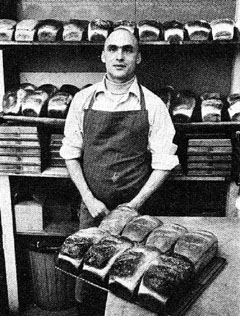


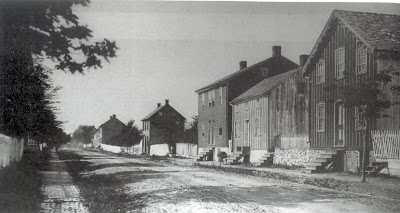





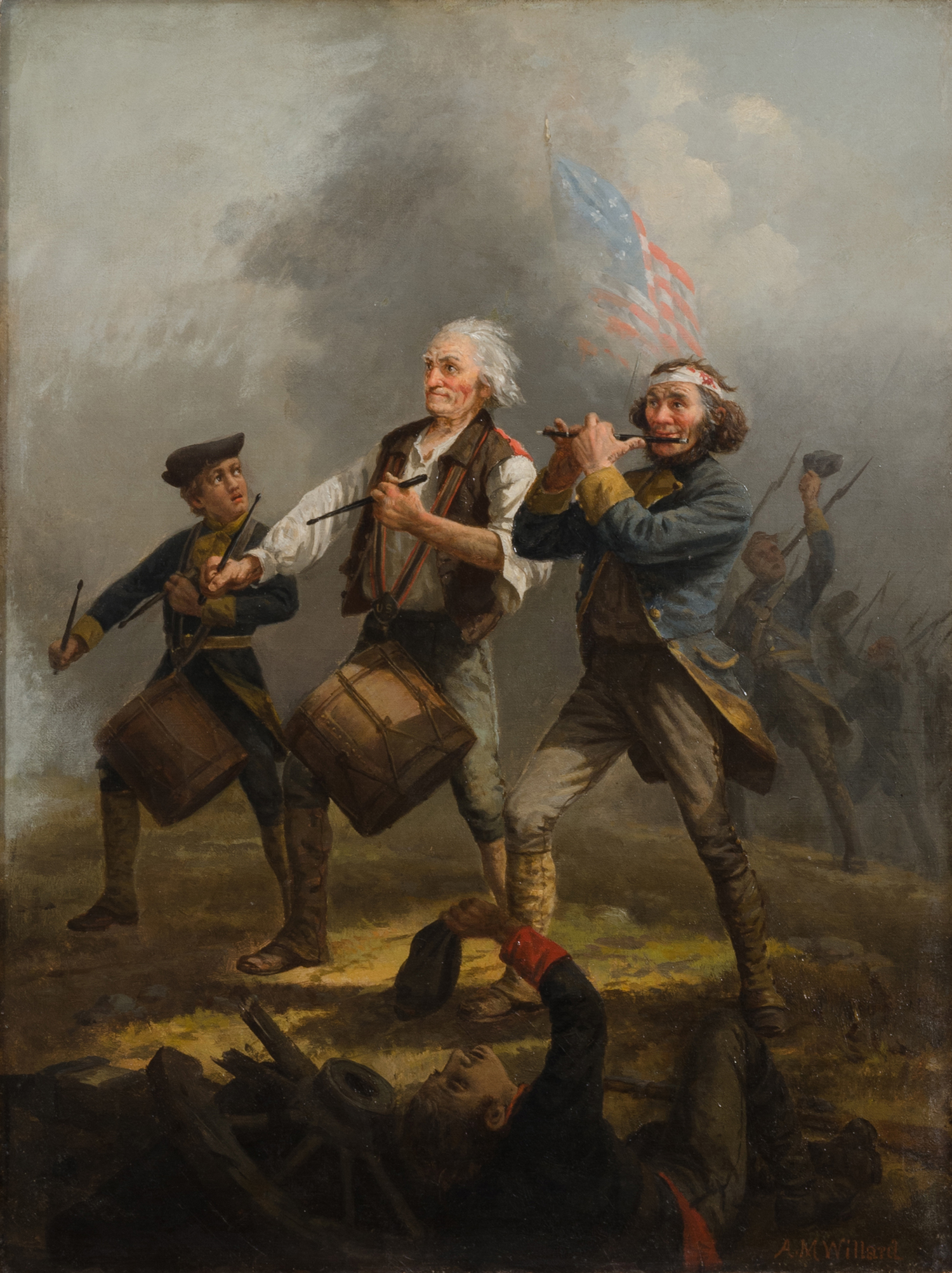



.jpg)
